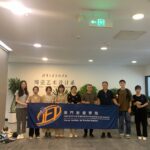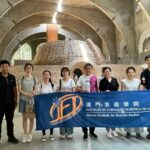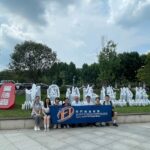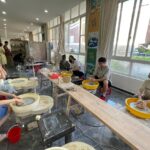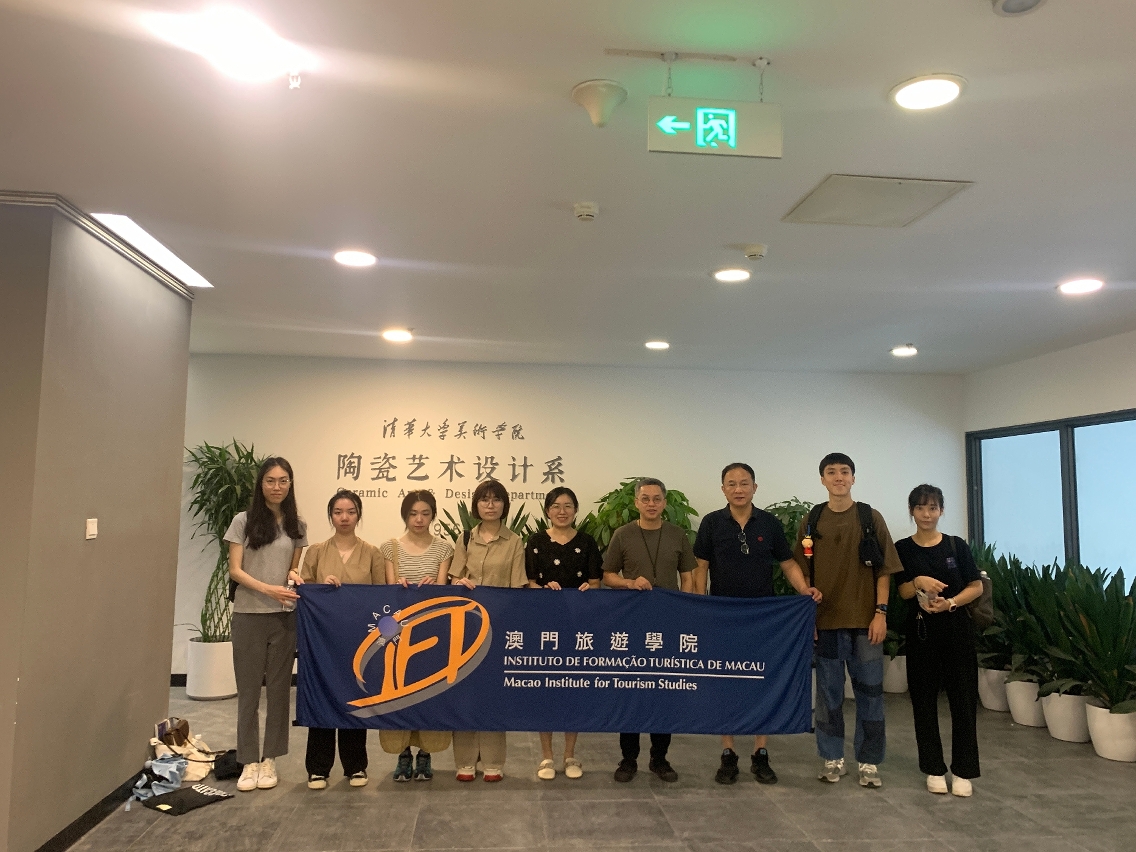 IFTM students participated in “Cultural Exchange Activity on Chinese Ceramic Intangible Cultural Heritage and Craftmanship”
IFTM students participated in “Cultural Exchange Activity on Chinese Ceramic Intangible Cultural Heritage and Craftmanship”
Macao Institute for Tourism Studies (IFTM) collaborated with Tsinghua University to carry out a 10-day cultural exchange activity on Chinese ceramic intangible cultural heritage and craftmanship. This activity was initiated by Mr. Wu Haoyu, an associate professor from the Department of Ceramic Design at Academy of Arts & Design, Tsinghua University, who invited six students from IFTM to join. With the theme of ceramic culture and its traditional craftmanship, IFTM students gained an understanding of the cultural diversity and significance of Chinese intangible cultural heritage. The IFTM student group was led by Dr. Chen Zhaoyu, Vicky from the School of Tourism Management. The entire trip included the visits to Beijing, Jingdezhen City and Wuyuan County in Shangrao City in Jiangxi Province from 31 July to 9 August, 2023. The students visited various places in Beijing, such as the Caochangdi International Art Village, 798 Art District, Tsinghua University, and the Prince Kung’s Palace Museum, to understand the creative ways of interpreting artworks and the creative spaces of artists, as well as to experience the cultural atmosphere of the city.
The group also visited Jingdezhen City, which is known as the “Porcelain Capital”. Here, the students learned the origin and contribution of ceramic culture to the development of the city, as well as the innovation of ceramic craftsmanship which form the cultural atmosphere of the place. In addition, the students had hands-on experience with several steps of making ceramics such as underglaze colouring and molding, as well as other intangible craftsmanship in Jingdezhen, such as painted oil-paper umbrellas, all of which enriched the students’ practical learning experience. This trip also allowed students to fully appreciate the value of Chinese ceramic culture ranging from traditional villages, ancient buildings, the diverse forms of intangible elements and associated cultural landscapes. Finally, IFTM appreciated the tremendous support from the following parties, including Ms. Zhang Jingjing, Dean of International School, Jingdezhen Ceramic University, Mr. Feng Shaojun, Curator of Jingdezhen China Ceramics Museum, and Mr. Sun Lixin, Deputy Director of Jingdezhen Folk Kiln Museum and the fourth-generation inheritor of the “Master Sun Kiln”.
Jingdezhen City in Jiangxi Province, as a UNESCO Creative City of Crafts & Folk Art, has rich ceramic features and culture. Macao, also as a UNESCO World Heritage city, has a mix of Chinese and Western cultures with outstanding universal values. The Bachelor’s Degree of Cultural and Heritage Management offered by IFTM is dedicated to the protection and transmission of cultural heritage under the guidance of international conservation practices. Through this kind of cultural exchange activity, it is beneficial for both Macao and Jingdezhen City to establish fruitful conversations and exchanges on their respective cultural resources. At the same time, it promotes friendship and mutual understanding between Macao and her Motherland, and expands the influence of Chinese ceramic intangible cultural heritage while attracting more high-quality talents to engage in the relevant field, thus achieving sustainable development. The Institute will continue promoting the establishment and sharing of innovative platforms, carrying out collaborative research on science, technology, and cultural innovation, and continuously promoting cultural and academic exchanges with universities in Mainland.


